
I was reading an article from my buddy the other day and he had an interesting trend.
14.1% of all searches on Google are in the form of a question.
Here’s the breakdown within the United States:
- How – 8.07%
- What – 3.4%
- Where – .88%
- Why – .82%
- Who – .6%
- Which – .33%
Because we have over a billion keywords globally in Ubersuggest and we already have a questions section, I thought it would be fun to see what it would look like worldwide.
As a heads up, it was a bit tricky for certain languages as people don’t always start a question with certain words like “how”.
None-the-less we were able to gather some interesting stats as we have data going back to 2017.
Global question and answer searches
Here’s what the question searches looked like in 2017.

And here’s 2018.

And 2019.

And 2020.

What do you notice when looking at the data?
Generally, the overall percentage of question-based search queries has gone up. In 2017 it was 13.41% and it went up to 14.52% in 2020.
The big change though was “how” related keywords went up consistently each year. From 7.68% in 2017 to 8.61% in 2020.
My guess is because more of the world’s population has been getting access to the Internet due to the mass adaption of mobile devices more of them are interested in learning solutions to their problems. Hence the increase in searches of “how” related terms.
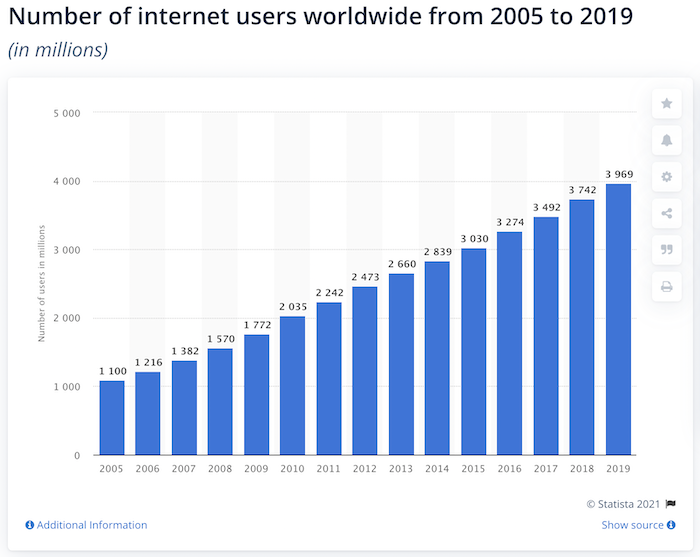
Just look at Neilpatel.com. Here are my ten most popular pages in Brazil from an SEO traffic standpoint.
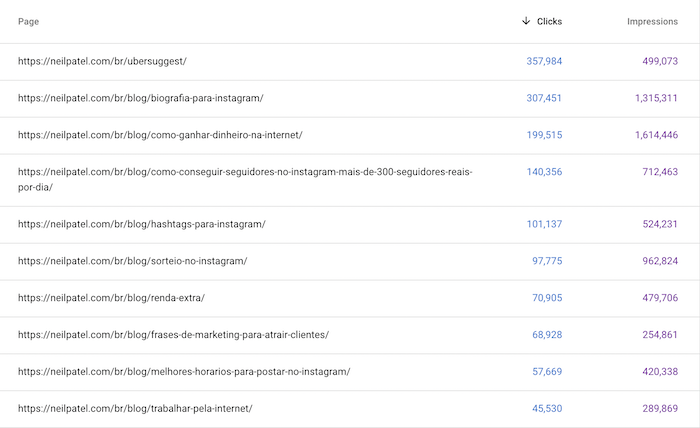
5 of the top 10 pages are question oriented URLs.
And it isn’t just with emerging Internet regions. Look at my US SEO traffic…
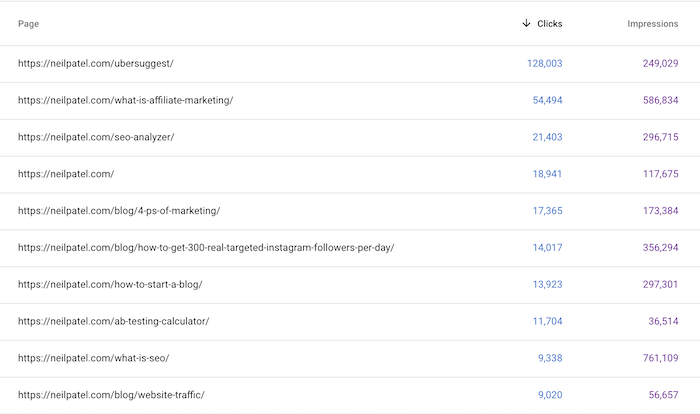
60% of the top 10 pages are question related.
But here’s where it gets interesting…
Questions are easier to rank for
Although questions are making up roughly 14.52% of the searches globally, there is something interesting to note.
They are much easier to rank for.
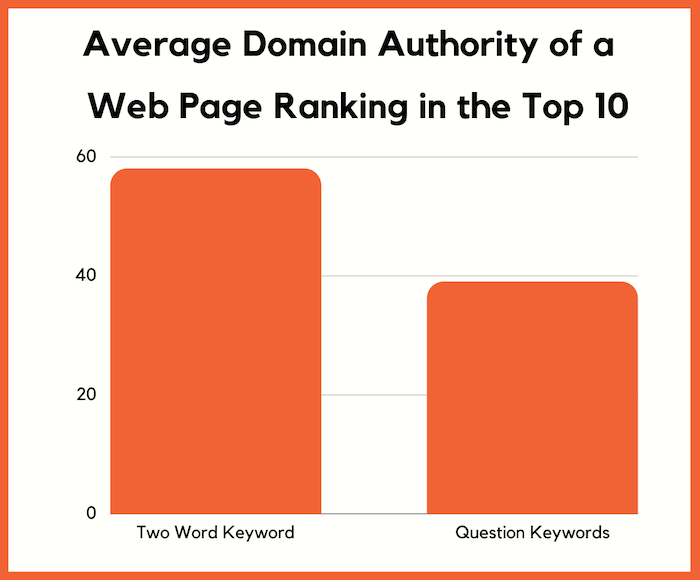
On average you need a domain authority of 58 to rank on the top 10 of Google for a two-word keyword, while you only need a domain authority of 39 to rank for a question-related term.
Now, if that doesn’t convince you to start creating questions related content, this should…
Blogs with 100,000 visitors create question-related content
We did an analysis of blogs that have over 100,000 monthly SEO visitors. When we looked at their top 100 pages, here’s what portion of their traffic came from questions.
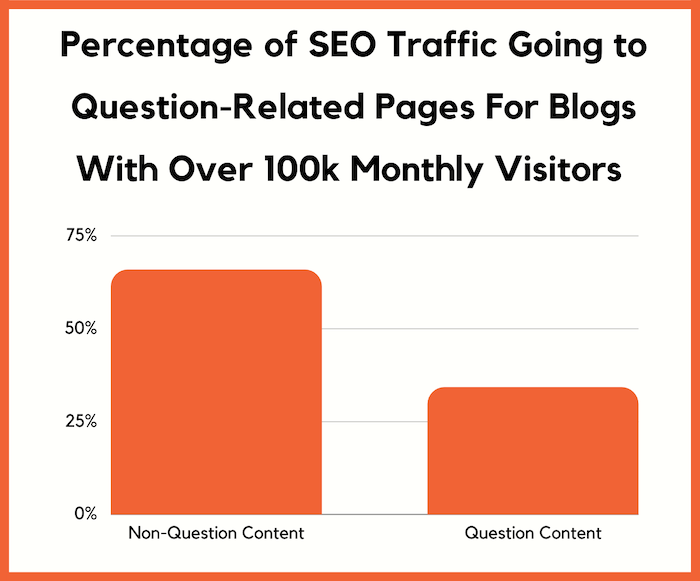
It’s a key ingredient to having a popular blog. Plus you don’t need as many links, hence you don’t need as high as a domain authority to rank.
If you aren’t going after question-related terms, you should consider doing so. And here’s how I would do it if I was you.
Head over to Ubersuggest and type in one of the main keywords related to your site. You don’t have to rank for that term, instead, you are using it for ideas.
For NeilPatel.com one of my main keywords related to my blog is “digital marketing”.
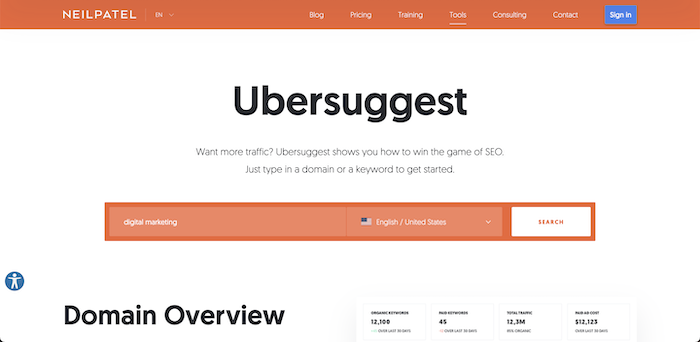
Once you hit “search” you’ll see a page that looks like this:
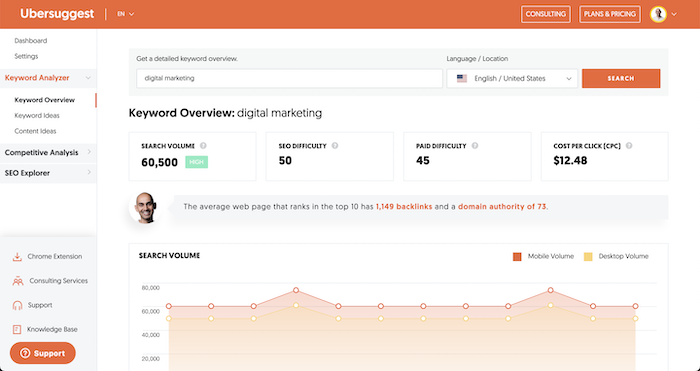
I want you to click on “Keyword Ideas” in the left hand navigation.

Uberuggest will present you with a list of thousands of potential keyword ideas.
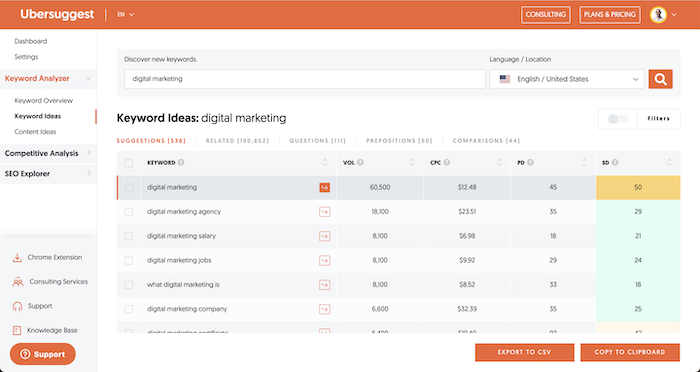
Now click on the “questions” navigational link… it should be right above the list of keyword ideas.

You’ll then be presented with a list of question related keywords that you could target.
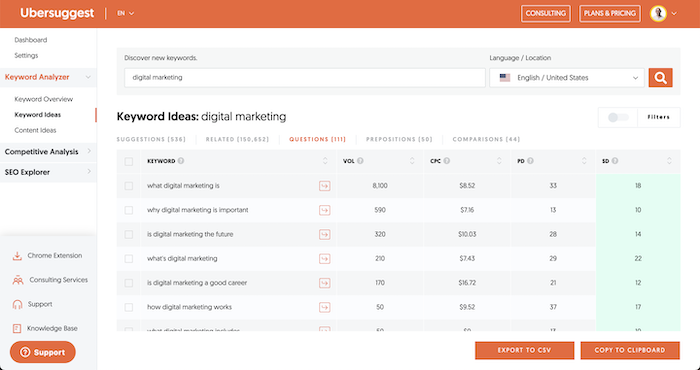
These keywords aren’t as popular as head terms, but there are a lot of them you can create content around. All you need to do is keep putting in more and more keywords within Ubersuggest and look at the “question” related suggestions.
Over time if you create content on hundreds of them, you’ll notice that the traffic will start adding up.
It’s not as competitive, new sites can easily rank for question based content.
Just look at Quora. It’s a site purely around question and answers.

According to Ubersuggest, it gets roughly 141 million visits a month from SEO. That’s a lot of traffic from creating question-related content.
Conclusion
If you haven’t created question related content you should start doing so.
It’s a large portion of my traffic and it is a strategy we use for all of our clients at my ad agency.
The more detailed you get on your content the better off you are going to do.
So, what are you waiting for? Go type in some keywords and start finding some popular question-based content.
from Blog – Neil Patel https://ift.tt/39rtX6K
via IFTTT
No comments:
Post a Comment